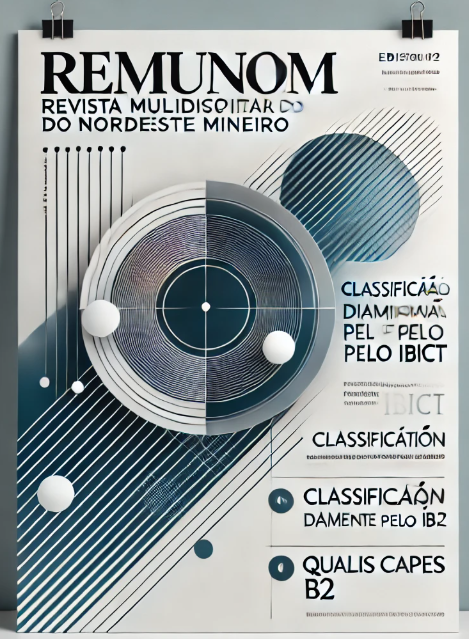FORMAÇÃO E TRANSFORMAÇÃO EDUCACIONAL
REFLEXÕES DE ALIKE E QUANDO SINTO QUE JÁ SEI
DOI:
https://doi.org/10.61164/rmnm.v9i1.3934Keywords:
teacher training, active methodologies, creativity, student leadership, pedagogical innovationAbstract
Introduction: Education is going through a turning point, requiring a break with traditional models based on the mere transmission of content. The National Common Curricular Base (BNCC, 2017) highlights the importance of critical and humanized teaching, in which the teacher acts as a mediator and encourages student autonomy. In this context, audiovisual resources such as Alike (2015) and Quando Sinto que Já Sabe (2014) become fundamental. Alike criticizes the standardization that stifles children's creativity, while Quando Sinto que Já Sabe highlights innovative pedagogical practices in Brazil, which value interdisciplinarity and student protagonism, in line with the principles of Freire (1996) and Foucault (1975). Development: Teacher training is central to educational transformation. In Alike, the father figure symbolizes the teacher who, without critical preparation, represses the student's uniqueness. When I Feel I Already Know shows educators who, by challenging curricular rigidity, transform their practices. Pedagogical innovation requires ongoing training, active methodologies, and the use of digital technologies, aligning theory and practice in an integrated manner. In addition, teaching environments directly reflect learning: collaborative and interdisciplinary spaces, such as those portrayed in the documentary, promote engagement and creativity, as advocated by Dewey (1938). Finally, such practices impact the student profile, which migrates from a passive role to a critical, autonomous, and creative stance, in line with the BNCC. Conclusion: The analysis of Alike and When I Feel I Already Know shows that educational transformation requires three interdependent axes: innovative teacher training, creative teaching environments, and redefining the student profile. Prepared and sensitive teachers become catalysts for an education that values autonomy and the collective construction of knowledge. Thus, educators and students together build a school that not only transmits knowledge, but also forms critical and creative citizens, prepared for the challenges of a constantly changing society.
Downloads
References
ALIKE. [Curta-metragem]. Direção: Daniel Martinez Lana; Rafa Cano Médez. Barcelona: Pepe-School-Land2, 2015.
BRASIL. Ministério da Educação. Base nacional comum curricular. Brasília: MEC, 2017.
DEWEY, John. Experience and education. New York: Macmillan, 1938.
FREIRE, Paulo. Pedagogia do oprimido. Rio de Janeiro: Paz e Terra, 1996.
FOUCAULT, Michel. Vigiar e punir: nascimento da prisão. Petrópolis: Vozes, 1975.
JÚNIOR, A. M. de M. (Des)potencialização da vida: um novo olhar a partir do curta metragem Alike. Revista Educação Básica em Foco, v.3, n.2, 2022. Disponível em:https://www.educacaobasicaemfoco.net.br/09/Resenhas/AdrianoMeninoDeMacedoJunior.pdf. Acesso em: 24 mar. 2025.
QUANDO sinto que já sei. [Documentário]. Direção: Tiago Antunes e Anderson Gobatto. São Paulo: D.A. Filmes, 2014. 1 DVD (78 min).
Downloads
Published
Issue
Section
License
Copyright (c) 2025 Revista Multidisciplinar do Nordeste Mineiro

This work is licensed under a Creative Commons Attribution-NonCommercial-ShareAlike 4.0 International License.
Autores que publicam nesta revista concordam com os seguintes termos:
- Autores mantém os direitos autorais e concedem à revista o direito de primeira publicação, com o trabalho simultaneamente licenciado sob a Licença Creative Commons Attribution que permite o compartilhamento do trabalho com reconhecimento da autoria e publicação inicial nesta revista;
- Autores têm autorização para assumir contratos adicionais separadamente, para distribuição não-exclusiva da versão do trabalho publicada nesta revista (ex.: publicar em repositório institucional ou como capítulo de livro), com reconhecimento de autoria e publicação inicial nesta revista, desde que adpatado ao template do repositório em questão;
- Autores têm permissão e são estimulados a publicar e distribuir seu trabalho online (ex.: em repositórios institucionais ou na sua página pessoal) a qualquer ponto antes ou durante o processo editorial, já que isso pode gerar alterações produtivas, bem como aumentar o impacto e a citação do trabalho publicado (Veja O Efeito do Acesso Livre).
- Os autores são responsáveis por inserir corretamente seus dados, incluindo nome, palavras-chave, resumos e demais informações, definindo assim a forma como desejam ser citados. Dessa forma, o corpo editorial da revista não se responsabiliza por eventuais erros ou inconsistências nesses registros.
POLÍTICA DE PRIVACIDADE
Os nomes e endereços informados nesta revista serão usados exclusivamente para os serviços prestados por esta publicação, não sendo disponibilizados para outras finalidades ou a terceiros.
Obs: todo o conteúdo do trabalho é de responsabilidade do autor e orientador.






